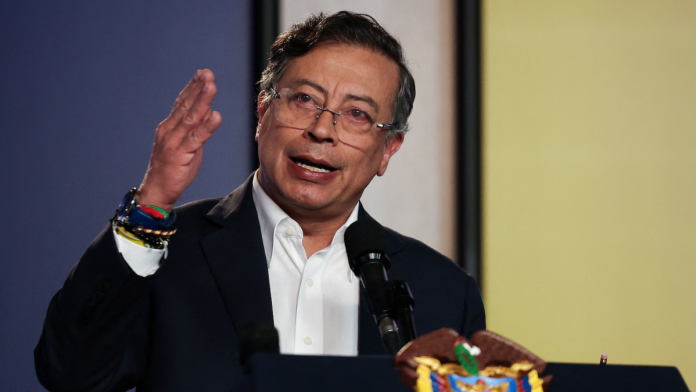The United States has taken a rare and dramatic step by imposing sanctions on Colombia’s President Gustavo Petro. Washington says Petro has failed to control drug trafficking in Colombia, allowing powerful cartels to grow unchecked. The sanctions have heightened tensions between the two countries and mark a major turning point in their diplomatic relationship.
Colombia has long been one of the United States’ closest partners in the fight against drugs. Over the decades, the country has received significant military and financial support to combat drug gangs. This partnership included billions of dollars in aid, training for narcotics agents, and joint operations to dismantle criminal networks. However, under Petro, Colombia’s first left-wing president, relations with Washington have become strained, leading to this unprecedented action.
Who Has Been Sanctioned
The US sanctions target President Petro and several key figures close to him. Colombia’s Interior Minister, Petro’s wife, and his eldest son are all included. Those sanctioned are prohibited from accessing assets, bank accounts, or property in the United States.
Additionally, the US removed Colombia’s certification as an ally in the war on drugs. This certification previously allowed Colombia to receive financial and military aid, as well as specialised training for law enforcement and anti-narcotics operations. Without it, Colombia loses key support in fighting drug trafficking.
US officials claim that under Petro’s leadership, cocaine production has surged to the highest levels in decades. Petro rejects these claims, arguing that coca cultivation increased under his predecessor. He also emphasizes his administration’s efforts to control coca growth and negotiate peace with rival drug gangs. Petro described the sanctions as “arbitrary” and typical of oppressive regimes.
Accusations Over Cocaine Production
The US Treasury claims cocaine production in Colombia has reached record-high levels, flooding the US market and creating health and safety risks. Much of this cocaine is believed to be purchased by Mexican cartels, which then smuggle it across the southern border into the United States.
Colombia has historically been the world’s largest producer of coca, the plant used to make cocaine. Decades of efforts to reduce cultivation have included aerial fumigation, eradication campaigns, and law enforcement operations. Petro disputes the US claims, insisting his administration has worked to control coca production and that reducing cultivation requires lowering demand in countries like the US and Europe.
While controversial, this strategy emphasizes peace-building over purely military solutions. Despite this, coca cultivation remains high, making it a central point of tension with Washington.
Rising Diplomatic Tensions
The sanctions are part of a larger pattern of escalating tensions. US airstrikes on boats suspected of smuggling drugs in the Caribbean killed dozens, including Colombian nationals. Petro condemned the strikes as acts of autocratic, while the US argued that other nations had failed to stop the smuggling boats.
Petro’s broader strategy focuses on peace negotiations with cartels rather than strict enforcement. These efforts have faced challenges, as violence continues and talks have stalled. Differences in policy philosophy—US law enforcement versus Petro’s negotiation-based approach—have fueled public debates in both countries.
The sanctions also affect Colombia-US relations beyond drug enforcement. Once a trusted partner, Colombia now faces uncertainty over military and financial cooperation. Analysts say the move may reshape how both nations work together on regional security and drug control.
World’s most secure museum breached — priceless French crown jewels vanish in bold Louvre robbery
Historical Context and International Impact
Sanctioning a sitting head of state is rare but not unprecedented. Leaders in countries like Russia, North Korea, and Venezuela have faced similar measures. Such sanctions send both symbolic and practical messages, showing strong disapproval of policies while limiting access to international systems.
The sanctions have implications for Colombia’s regional influence and its relationship with the United States. They signal that Washington is serious about holding leaders accountable when drug production threatens other countries. At the same time, they highlight the challenges of balancing domestic priorities with international expectations.
Observers note that the sanctions come at a time of broader tension in Latin America, where relations between left-wing governments and the United States have often been strained. This action against Petro underscores the complexities of addressing drug trafficking and organized crime in a connected world, where domestic policies can have far-reaching international consequences.


